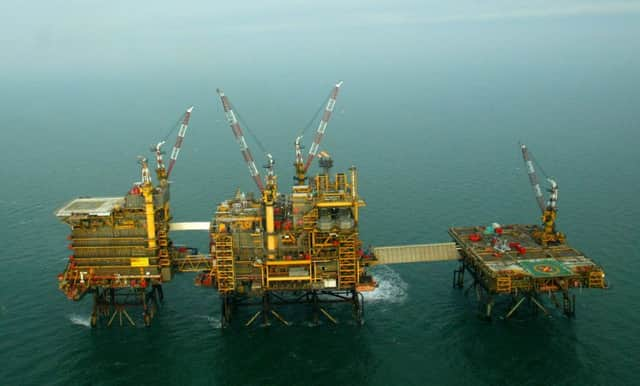Leaders: Respite for North Sea, but Culzean is no panacea


But the announcement that development of the largest new gas field for a decade has been given the green light provides some welcome respite. At peak production, operators Maersk Oil is projecting that the Culzean field will produce enough gas to meet 5 per cent of total UK demand, with reserves equivalent to about a quarter of a billion barrels of oil. The company said the £3 billion project will create upwards of 400 direct jobs and support an estimated 6,000 roles in the UK.
Andy Samuel, chief executive of the Oil & Gas Authority, hailed the scheme as “excellent news for the UK during a period when the decline in global oil prices has created difficult operating conditions for this critical sector of our economy”.
Advertisement
Hide AdAdvertisement
Hide AdChancellor George Osborne, who chose an auspicious day to visit Scotland yesterday, said it sent a “clear signal that the North Sea is open for business” and pointed to the UK government’s support of the industry.
It would be meanspirited not to allow Mr Osborne his moment of gratification, but even a development which is expected to operate for 13 years from 2019, producing between 60,000 and 90,000 barrels a day, will not calm troubled waters. Only last week, Maersk said it would be seeking regulatory permission to close its Janice oil rig in the North Sea, plans which would axe 200 jobs.
There is no doubt that there are resources below the North Sea that have yet to be harnessed, though making predictions as to the scale of the reserves left is a near impossible task. Changes in technology will continue to make commercial extraction easier, but Scotland and the UK will continue to deal with global commodities in a global marketplace.
Yesterday’s good news is to be welcomed as long as it does not dissuade us from planning for tomorrow. Oil and gas will play an important role in the country we pass on to our children, but no new development will act as an economic cure all. The sector must be a constituent part of an economy that looks far and wide.
In the long term, renewables are the future of the nation’s energy market. Figures published by WWF Scotland showed that, in July, wind turbines in Scotland alone provided an 660,00MWh of electricity to the National Grid, enough to supply, on average, some 1.75 million homes. This is a hugely encouraging increase, but like oil and gas, we must be prudent when taking delivery of positive news. At a time of global upheaval, Scotland’s energy market cannot rely on old certainties or bold new promises. A considered mix is the best option.
Another triumph for festival season
IF THERE is one abiding quality of Edinburgh’s festival season that puts a smile on the face and quickens the step of the crowds heading to Bristo Square or down the Royal Mile, it is its remarkable capacity for self-improvement. Year after year the city endures dour warnings that its merriment has peaked and ticket sales are sure to head south. Yet Edinburgh is forever ready with a punchline.
The summer of 2015 continues this pleasing trend. With a well-received programme which combined tradition with experimentation, the Edinburgh International Festival reported record sales worth more than £3.8 million, with the box office up 19 per cent on last year’s event.
The Edinburgh Festival Fringe Society announced last night that an estimated 2,298,090 tickets had been issued for its shows, a 5.24 per cent increase on the previous 12 months.
Advertisement
Hide AdAdvertisement
Hide AdOrganisers of the Edinburgh International Book Festival, meanwhile, said this has been the most successful year in its history with a 2 per cent increase in ticket sales and a 5 per cent rise in book sales.
This triumvirate of chapters in the capital’s success story comes at a time when a growing number of festivals across the world are competing for artists, audiences and funding. Still Edinburgh finds a way of maintaining its competitive edge.
There is no doubt the pleasant weather has contributed to the buoyant sales and the lack of a draw comparable to last summer’s Commonwealth Games in Glasgow has helped. But the organisers of these cultural spectacles deserve credit for playing to their strengths. Long may they prosper.